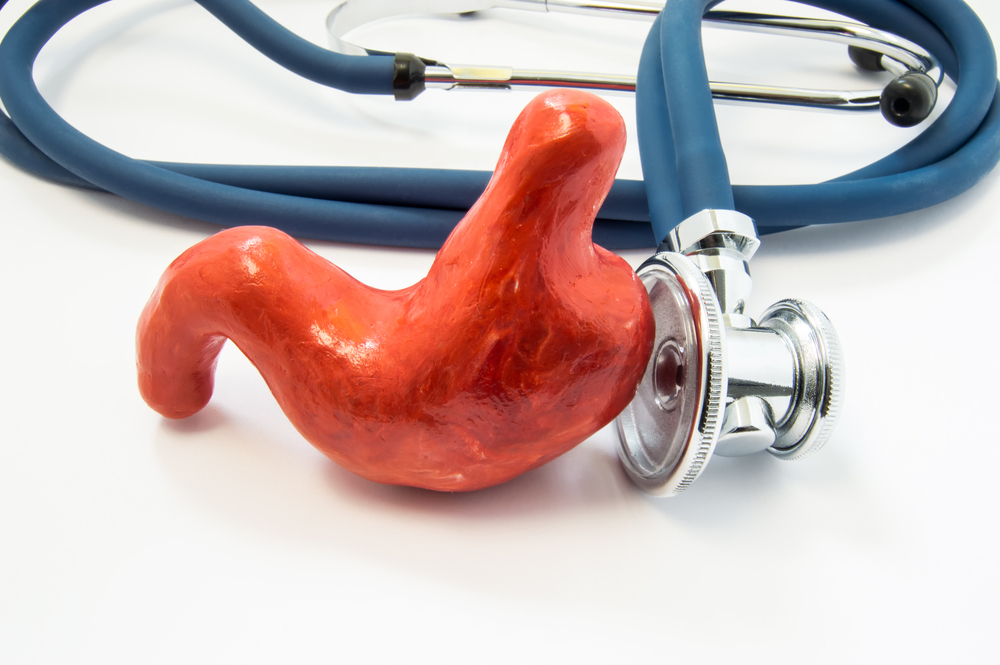An ulcer is a skin lesion, such as a pressurized ulcer, or the body’s mucous membranes, such as an ulcer on the stomach. Some people experience acute symptoms and others are mild. See your doctor immediately if you have any stomach ulcer symptoms.
Part 1 Recognizing Symptoms
Watch out anywhere between the breast and the belly button for the pain in your abdomen.

The pain can vary from a few minutes to a few hours in duration and severity. It is often between meals when your stomach leaks and may be called burning, stiffening, or dull pain. The extent of pain, your age, and the location of the ulcer are certain factors.
Use of food that tampers the acid in the stomach or takes an over-the-counter antiacid medicine can often temporarily alleviate ulcer-related pain.
If ulcers cause your stomach pain, flames can occur at night and when you have starvation.
Watch for other ulcer symptoms reported by the patients.
For all people, not all of these symptoms happen. This means that you can only experience some or all of the symptoms.
The amount of gas and burping is increasing.
It’s a feeling of completeness and a lack of fluid to drink.
A few hours after a meal, be hungry.
Mild nausea, usually during the early morning wakes.
A feeling overall of tiredness and unwellness.
Appetite loss.
Loss of weight.
Recognize the symptoms of a severe ulcer.

Ulcers can cause internal bleeding and other problems that remain untreated, resulting in a medical emergency.
An indication of advanced ulcers can be negative, in particular, if it looks like coffee and/or if blood is present.
Dark, tarry, or pasty heavy ulcers may also show signs.
Bloody stools.
Visit your doctor if you are experiencing any ulcer symptoms.

Ulcers are a serious condition requiring medical care. Over-the-counter products may offer provisional relief, but don’t treat the condition. On the other hand, your health provider can assist you in treating the root cause of your ulcer.
Know if you get stomach ulcers more likely.
Although stomach ulcers may present to most people for a number of reasons, the people at greatest risk for them are those infected by the bacteria Helicobacter pylori or those who are more susceptible to them, such as those who have low acidity of the stomach.
People who regularly take NSAIDs such as ibuprofen, aspirin or naproxen. NSAIDs are not used for any other medicine.
Individuals with an ulcer family history.
Those who drink alcohol regularly.
Individuals who have liver, kidney, or lung diseases or diseases.
People over the age of 50.
People who have or had a digestive disorder or illness like Crohn’s disease
Part 2 Quick Tips for People Suffering From Ulcers
Take your doctor’s appointment.
While the majority of estomach ulcers themselves are healed, certain severe stomach ulcers need an endoscope to be diagnosed and medicated. An endoscope will guide your oesophagus through a small, lighted tube. This can only be done by your doctor. Meanwhile, try some of those quick corrections before you see your doctor.
Take medication for acid-blocking.

Doctors are sometimes advised to see if symptoms improve an acid-blocking medicine. It is because stomach ulcers may be caused by an imbalance in the stomach and duodenum of the digestive fluids.
In general, a round of antibiotics that act as an acid suppressor are prescribed to you if H. pylori is shown.
Make some lifestyle modifications.

Stop smoking, consume NSAIDs and drink. Smoking and drinking may both cause digestive fluid imbalances, while NSAIDs may disturb the balance and irritate the stomach lining when taken at high doses. Stop all three as you wait for your doctor’s diagnosis.
Eat a balanced, healthy diet.

It may offer temporary relief to eat more frequently or concentrating on a certain food group such as the diary, but ultimately it can produce even more acidic stomachs. Take care to eat a healthy, balanced diet rich in protein and unsaturated fats. Try incorporating fresh fruits or vegetables into each meal, select entire cereals as much as possible and, if available, depend on lean proteins.
Avoid foods that make you uneasy. For many, coffee, caffeine, fatty foods, chocolate and spicy foods are included.
Try to adhere to an ordinary meal plan. Avoid late in the night snacking.
Do not drink milk.

Drinking milk may be a temporary remedy, but it is like one step forward and two steps backwards. For a short while, Milk will be covering the lining of your wall. But milk also stimulates the production of more acid in the stomach that ultimately exacerbates the ulcers.
FACTS!
A significant proportion of stomach ulcers is not caused directly by stress or food, but by Helicobacter pylori, a bacteria rather than a virus. Australian scientists Barry Marshall and Robin Warren have been awarded a Nobel Prize for this discovery.
Doctors used to tell patients to control their ulcers by changing diets and lifestyles before they discovered the connection between ulcers and H. pylori bacteria. While we know that the bacteria cause most ulcers, the style of life and diet are still true that symptoms can be exacerbated. Due to a thorough control of stress through prayer, yoga or meditation, exercises, and a healthy, balanced diet, low in fat and spices, ulcer symptoms for some people may be controlled.
WARNING!
When left untreated, the wall of the stomach or intestine may be pierced by an ulcer, causing inner bleeding and life-threatening infections.
Also Read : Know How To Sleep With A Stomach Ulcer – V Cure (vcurehealthcare.com)





